Chinese social media users worry over virus
- Published
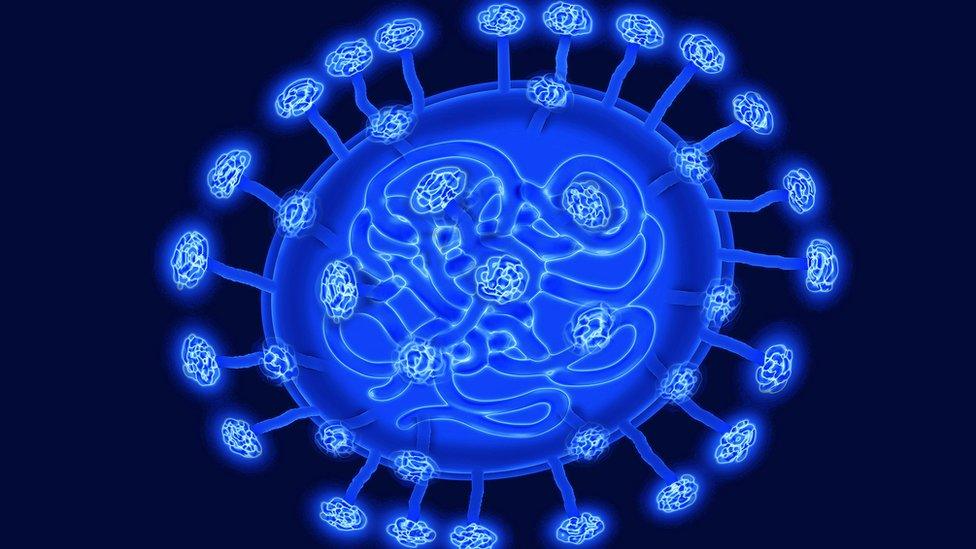
Health authorities are trying to inform social media about the human coronavirus
The outbreak of a new coronavirus in China, which has led to hundreds of confirmed cases, is causing worry.
And users on China's tightly-controlled Weibo platform have been - within reason - allowed to express their concerns, largely through offering health advice and calling for quarantine measures. There's evidence that some posts have been removed from the WeChat platform.
On Twitter, which is blocked in China but accessible via workarounds, users are worried that the virus - which has already spread outside the country - could cause an epidemic on the scale of the 2002-03 Sars outbreak.
Some users appear to be spreading misinformation on the virus, while health organisations are doing their best to reassure people.
Yet despite the virus making headlines around the world there seem to be surprisingly few conspiracy theories getting any traction.
Criticism of Chinese response 'censored'
Last week, users on Sina Weibo, China's Twitter-like platform, were rife with questions about why they were only hearing about confirmed cases in Wuhan, and nowhere else in China.
Some made comments suggesting that local governments were withholding information about potential cases. But social media users are well-aware within the country that even mentioning the word "government" can make posts more likely to be censored.
At the same time, censorship monitoring website Free WeChat has captured posts that have been removed from the WhatsApp-like messenger service WeChat.
Many of these include comments by Jiang Yanyong, a prominent Chinese physician, who has made comments suggesting the authorities aren't giving full transparency to the scale of the outbreak.
Mr Jiang famously blew the whistle on China's SARS epidemic back in the early noughties. He spent a brief time in detention as a result.
Weibo worriers praise healthcare 'heroes'
Chinese state media has denied any suggestions of a cover-up surrounding the outbreak, and continues to stress the country's vigilance and determination to control the virus.
Indeed, President Xi Jinping has made clear he wants authorities to take measures to "guide public opinion" as part of "all-out efforts" to control the outbreak.
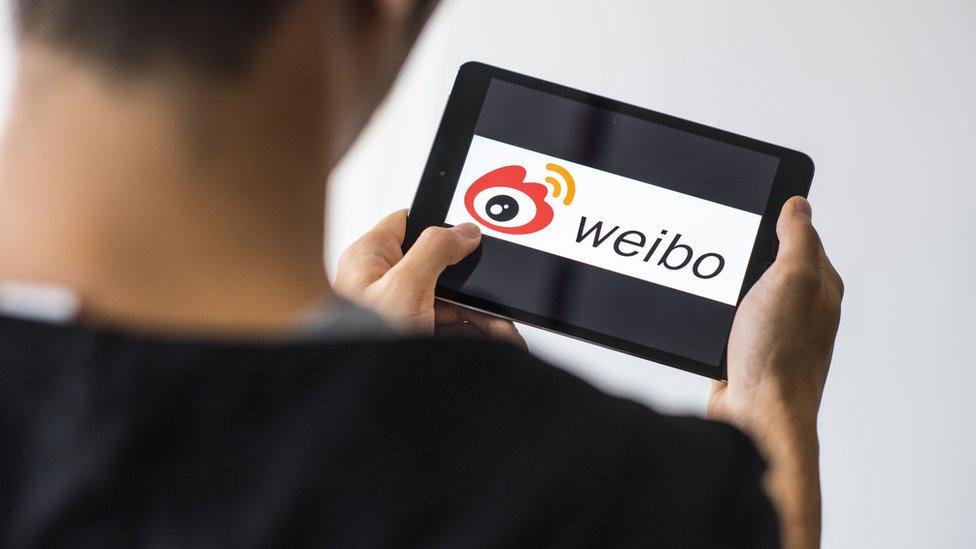
Weibo users in China have been using the platform to express their concerns over the spread of coronavirus
Instead, users are expressing hopes that the virus is contained in the Wuhan area where it emerged. They are also urging other users to take basic health precautions to avoid infecting themselves and others.
There's also widespread praise for medical professionals, who are being lauded as "heroes", alongside support for a government-backed campaign to end wild animal markets of the type thought to have been the source of the outbreak.
State media have been keen to promote certain officials, especially those who have lauded medical staff efforts to control the virus.
The most extreme opinions that have passed the censors include calls to isolate Wuhan from the rest of China, especially during the current Spring Festival season, when tens of millions of Chinese visit relatives, both at home and abroad.
Tackling disinformation
Official social media accounts are helping to spread positive information about the outbreak. The World Health Organization in the Philippines published a video explaining coronaviruses, external after is emerged that there was a possible case involving a child in the country.
WHO Philippines has also been working to correct wrong information both from mainstream news outlets and individuals, telling its followers that reports that the five-year-old child from Wuhan City had tested positive were incorrect and that tests were still ongoing.
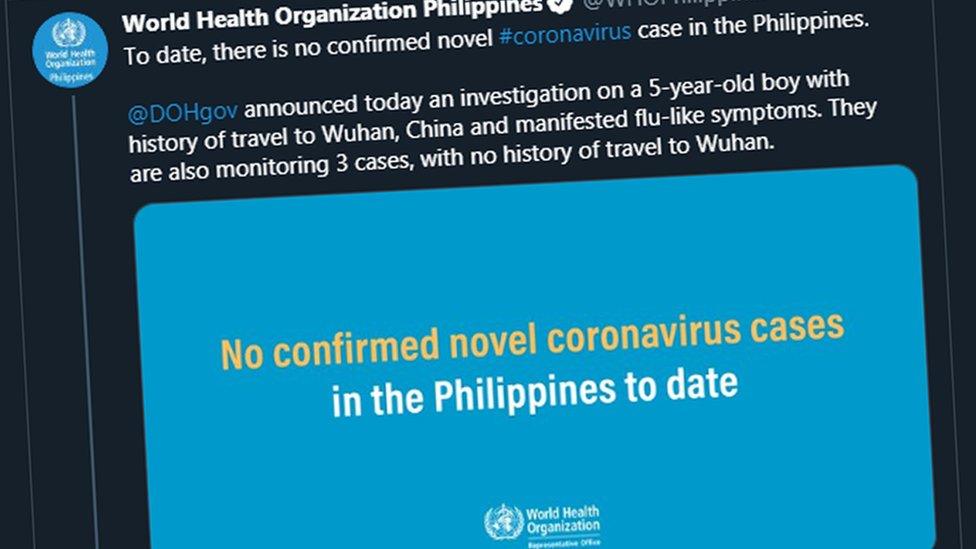
The World Health Organization is reassuring social media users on the spread of the virus
However, there are false rumours appearing on Twitter, often as replies to news posts. One, for example, claims quarantine camps are being set up in American cities "like a 1950s sci-fi movie".
One of the most-shared posts mentioning coronavirus - retweeted 1,200 times - is an all-caps screed asking "WHY IS NO ONE TALKING ABOUT THE #CORONAVIRUS AND HOW IT HAS ALREADY CLAIMED 4 LIVES". It repeats the (currently) inaccurate claim about the ill boy in the Philippines.
The same user's correction and clarification - as in most cases when a misleading tweet gets big numbers - was only retweeted four times.
'Cover-up' theory not gaining traction
The identification of the first patient in the United States has led to concern among American social media users, but surprisingly few conspiracy theories.
One term used on Twitter about the US victim is "Patient Zero", external, a phrase which - while technically correct as the initial patient in a given population - is a loaded term. It's a widely-used plot device for TV dramas and horror movies, and more likely to engender panic than reassurance.
The preferred medical term is "index case" - which in the case of this virus, would more accurately refer to the first person infected in Wuhan.
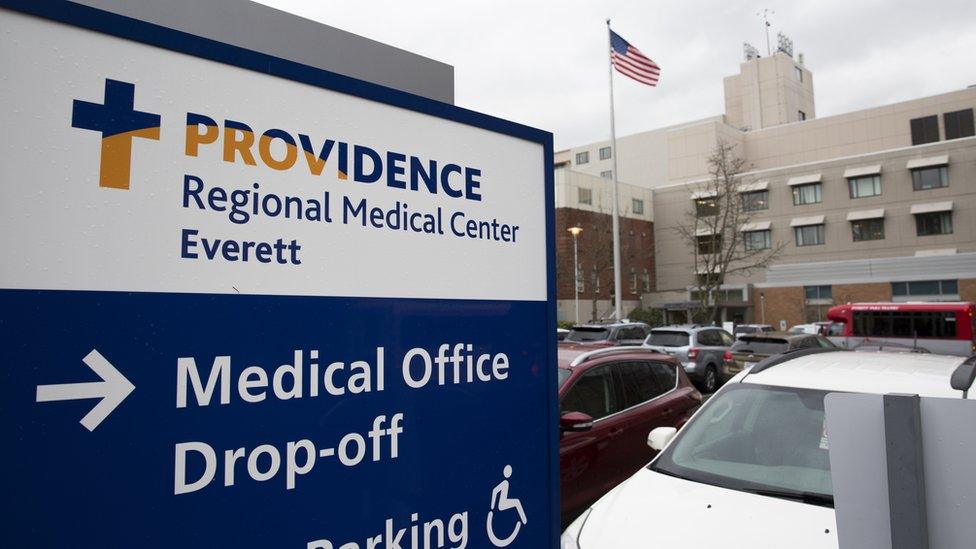
The first case of the virus in the United States has been confirmed in Washington state
There are limited accusations that the outbreak has been covered-up by the Chinese authorities, with some of these posts made by users who also support Hong Kong democracy protests. One user cites nervousness about the forthcoming Spring Festival, or Lunar New Year, as apparent motivation for a cover-up.
"CCP knew how serious it was and decided to cover it up weeks ago," he claims, referring to the ruling Chinese Communist Party.
Such theories do not appear to be gaining much traction, nor does the idea among a small number of US Twitter users that the first coronavirus case in the country has been timed to coincide with President Trump's impeachment trial.
Given social media users' habit of not believing governments or their agencies, it's hardly surprising that some express doubts over official advice. Commenting on the US Centers for Disease Control and Prevention saying that "the general risk for the American public was still deemed to be low", Twitter user and activist Barbara Malmet (149,200 followers) said: "Wish I could believe the CDC."
It's a view that chimed with her followers, who agreed with the inevitability of 2019-nCoV, as the virus is known, reaching the United States. "With Trump in office, I don't believe anything coming from our government on any subject," says one reply.
BBC Monitoring, external reports and analyses news from TV, radio, web and print media around the world. You can follow BBC Monitoring on Twitter, external and Facebook, external.
- Published22 January 2020
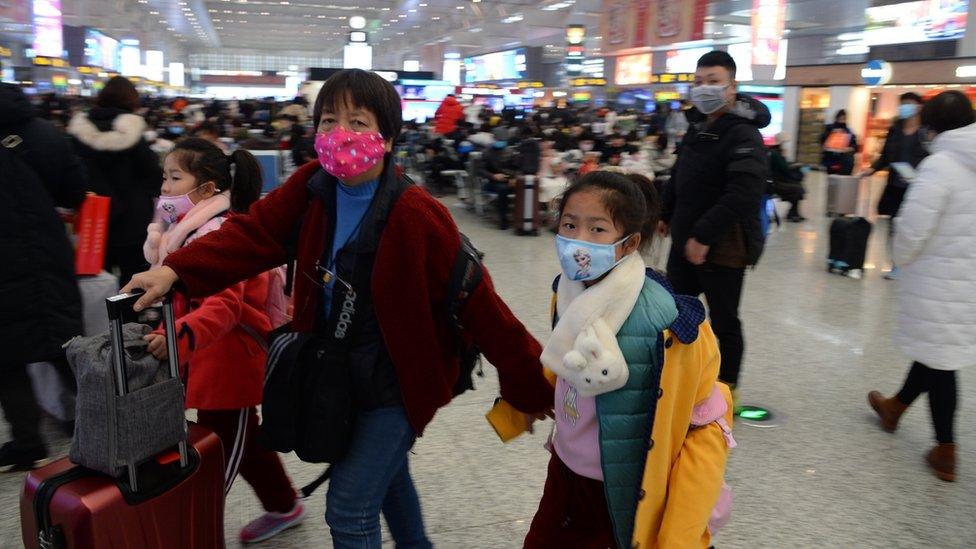
- Published22 January 2020
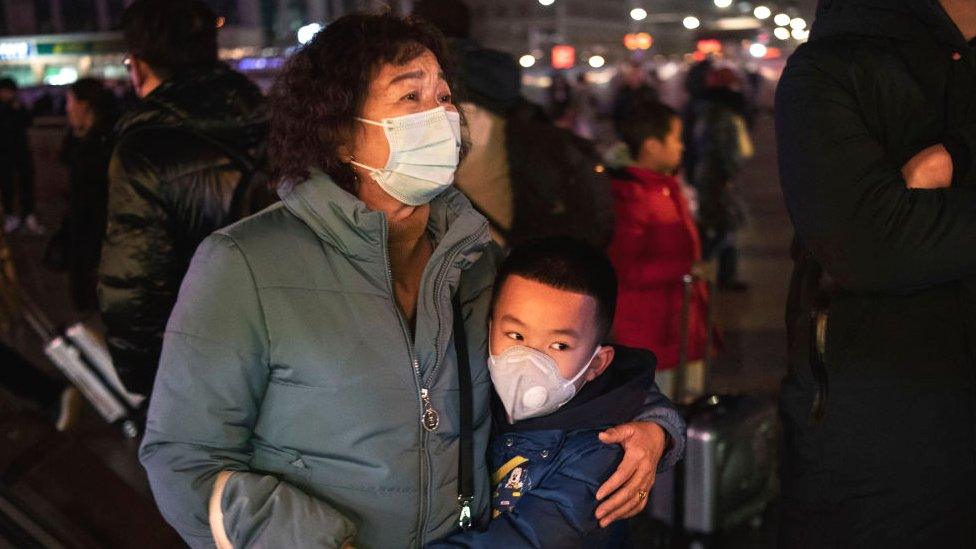
- Published21 January 2020

- Published6 October 2021
